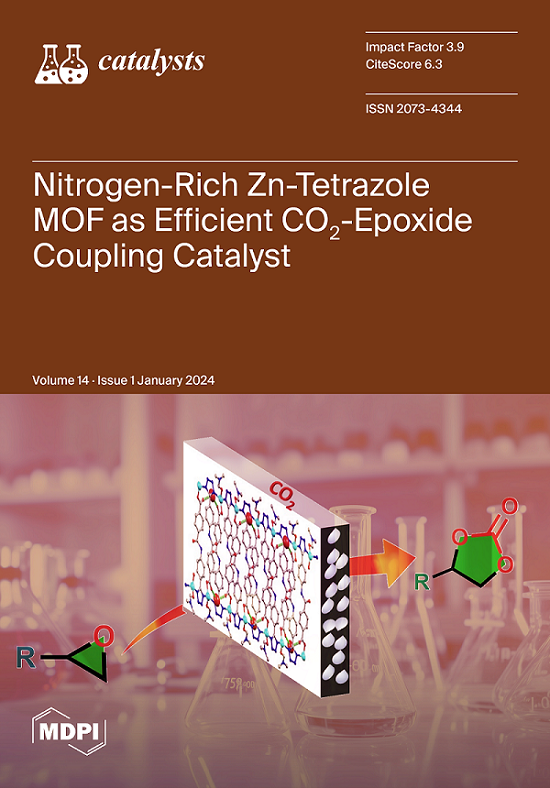Catalytic Hydrodeoxygenation of Solar Energy Produced Bio-Oil in Supercritical Ethanol with Mo2C/CNF Catalysts: Effect of Mo Concentration
IF 4
3区 化学
Q2 CHEMISTRY, PHYSICAL
引用次数: 0
Abstract
Transition metal carbides have emerged as an attractive alternative to conventional catalysts in hydrodeoxygenation (HDO) reactions due to surface reactivity, catalytic activity, and thermodynamic stability similar to those of noble metals. In this study, the impact of varying Mo concentration in carbon nanofiber-supported catalysts for the supercritical ethanol-assisted HDO of bio-oils in an autoclave batch reactor is discussed. Raw bio-oils derived from agave bagasse and corncob through solar hydrothermal liquefaction were treated at 350 °C. Our findings indicate that the presence of Mo has a strong impact on both product yield and chemical properties. Thus, a Mo concentration of 10 wt.% is enough to obtain high deoxygenation values (69–72%), resulting in a yield of upgraded bio-oil ranging between 49.9 and 60.4%, depending on the feedstock used, with an energy content of around 35 MJ/kg. A further increase in the Mo loadings (20 and 30 wt.%) reduced the loss of carbon due to gasification and improved the bio-oil yields up to 62.6 and 67.4%, without compromising the product quality.使用 Mo2C/CNF 催化剂在超临界乙醇中对太阳能生产的生物油进行催化加氢脱氧:钼浓度的影响
过渡金属碳化物由于具有与贵金属相似的表面反应活性、催化活性和热力学稳定性,已成为氢脱氧(HDO)反应中传统催化剂的有吸引力的替代品。在本研究中,讨论了不同Mo浓度的纳米碳纤维负载催化剂对生物油在高压釜间歇式反应器中进行超临界乙醇辅助HDO的影响。以龙舌兰甘蔗渣和玉米芯为原料,经太阳热液液化,在350℃条件下进行生物油处理。我们的研究结果表明,Mo的存在对产品收率和化学性质都有很大的影响。因此,10 wt.%的Mo浓度足以获得高脱氧值(69-72%),从而产生升级生物油的收率在49.9%至60.4%之间,具体取决于所使用的原料,能量含量约为35 MJ/kg。进一步增加Mo含量(20 wt.%和30 wt.%)减少了气化造成的碳损失,并在不影响产品质量的情况下将生物油收率提高到62.6%和67.4%。
本文章由计算机程序翻译,如有差异,请以英文原文为准。
求助全文
约1分钟内获得全文
求助全文
来源期刊

Catalysts
CHEMISTRY, PHYSICAL-
CiteScore
6.80
自引率
7.70%
发文量
1330
审稿时长
3 months
期刊介绍:
Catalysts (ISSN 2073-4344) is an international open access journal of catalysts and catalyzed reactions. Catalysts publishes reviews, regular research papers (articles) and short communications. Our aim is to encourage scientists to publish their experimental and theoretical results in as much detail as possible. Therefore, there is no restriction on the length of the papers. The full experimental details must be provided so that the results can be reproduced.
 求助内容:
求助内容: 应助结果提醒方式:
应助结果提醒方式:


